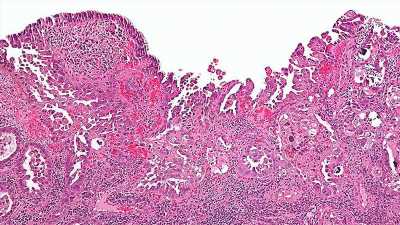Uterine cancer is now recognized as a 9/11-related cancer, giving affected women access to World Trade Center (WTC) Health Program and Victim Compensation Fund benefits, the Centers for Disease Control and Prevention has announced.
The decision, which follows more than a year of research, discussion, and opportunities for public comment, makes uterine cancer the 69th 9/11-related cancer — and the first to be added to the 9/11 registry in nearly a decade. Uterine cancer was the only cancer not included in the program.
The final rule takes effect immediately, allowing the WTC Health Program — a federal program that provides no-cost medical monitoring and treatment for certified WTC-related health conditions — to begin covering treatment services as soon as possible for patients with certified WTC-related uterine cancers. The program, administered by the CDC’s National Institute for Occupational Safety and Health, is authorized for the next 67 years (through 2090).
About 200 people currently enrolled in the program have uterine cancer — a number that is expected to increase as women who don’t have another qualifying 9/11-related illness become eligible to enroll. Families of those who have died of 9/11-related uterine cancer are also eligible to seek compensation.
Sara Director, a 9/11 legal advocate and partner at Barasch & McGarry who represents numerous survivors and fought for the rule change, called the decision “a huge victory” for women who survived 9/11, as well as those who lived and worked in the area around Ground Zero in the weeks and months after the attack.
The two-decade delay in recognizing 9/11-related uterine cancer has been costly for affected women who have had to pay for expensive treatments.
The delay, as explained by the WTC Health Program in a statement last May on the proposed rule change, was the result of “insufficient evidence” to support the addition of uterine cancer under the WTC Health Program. However, as reported previously, an advisory committee this past November unanimously approved the recommendation to add uterine cancer to the list of diseases covered by the program for first responders and those close to the attacks.
For more information and a program application, visit the WTC Health Program page at cdc.gov.
Sharon Worcester, MA, is an award-winning medical journalist based in Birmingham, Alabama, writing for Medscape, MDedge, and other affiliate sites. She currently covers oncology, but she has also written on a variety of other medical specialties and healthcare topics. She can be reached at [email protected] or on Twitter: @SW_MedReporter
For more news, follow Medscape on Facebook, Twitter, Instagram, YouTube, and LinkedIn
Source: Read Full Article
